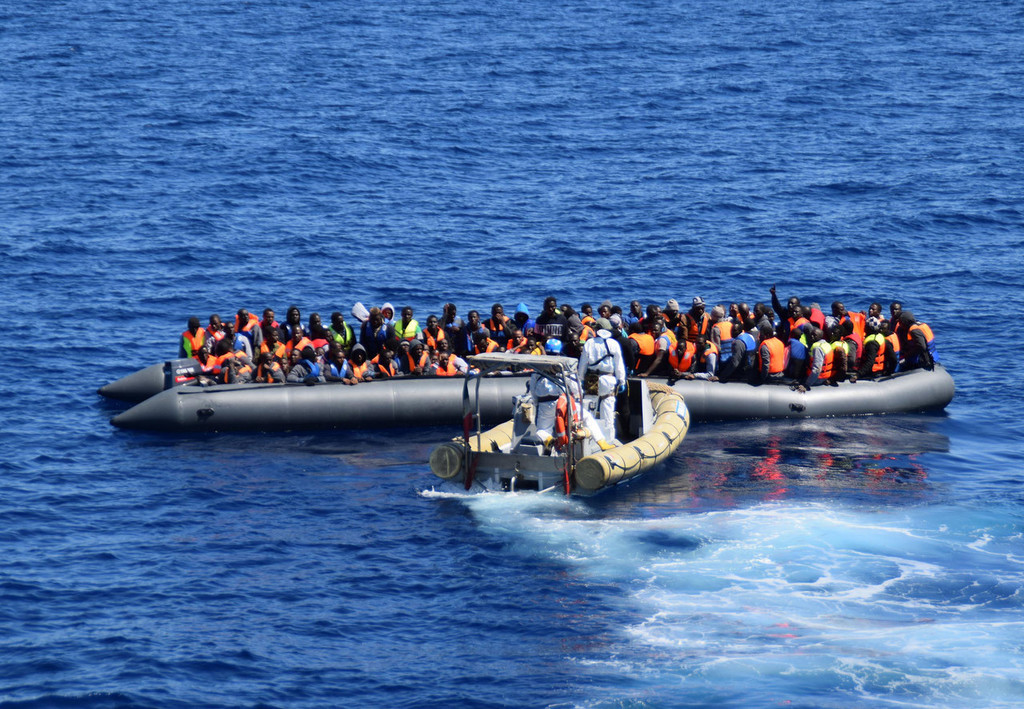Italy to fine groups who rescue refugees at sea


Despite hundreds of refugee deaths at sea this year, Italy has passed a law that will limit the entry of ships into its territorial waters and aims to curb the activity of migrant rescue boats operated by charities.
The decision came hours before right-wing Interior Minister Matteo Salvini announced the closure of a reception center for asylum seekers in Sicily.
"I think we have approved a step forward for the security of this country," Salvini, also a deputy prime minister in the coalition government, said at a news conference.
However, the measure was adjusted from its draft version after Sergio Mattarella, Italy's president, and rights groups expressed alarm.
Last month United Nations human rights experts wrote to Italy saying the draft decree was an attempt to criminalize search and rescue operations carried out by humanitarian groups.
Salvini has repeatedly accused charity rescuers of being complicit with people smugglers and already tightened migration rules in November, with a bill clamping down on asylum rights.
Non-profit organizations have denied any wrongdoing, but most have stopped operating in the Mediterranean due to Italy's closure of its ports and repeated investigations by prosecutors.
Two charities said on Wednesday that since Italy refused entry to hundreds of migrants on the Aquarius rescue boat a year ago, 1,151 people had drowned in the Mediterranean and more than 10,000 others had been forced to return to face danger in Libya.
Medicins Sans Frontieres (Doctors Without Borders) and SOS Mediterranee said migrants were now almost four times more likely to die compared with last year.
The decision to close the Mineo asylum camp in Sicily came after the number of asylum seekers there declined from 2,526 a year ago to 152, Italy's Ansa news agency reported.
Claudia Lodesani, president of MSF Italy, told the Independent newspaper: "A year after the announcement of the closure of its ports, the Italian government continues to target search and rescue operations in the Mediterranean, endangering the lives of vulnerable people searching for safety.
"Fining the captain or the ship owner of a search and rescue vessel is like fining an ambulance taking patients to hospital."
"Saving lives is not a crime," Lodesani added. "It is a legal obligation that EU member states should make a priority. But, once again, Italy shows little sensitivity to international obligations.
"Instead of working together with other European states to create a proactive and adequate search and rescue system, the Italian government criminalises sea rescue."

































